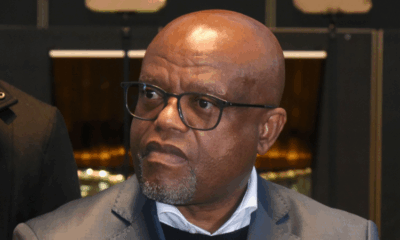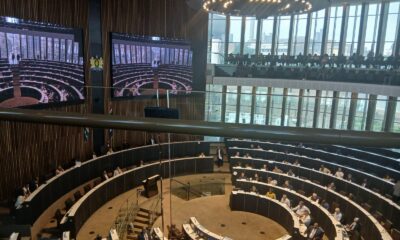News
Joburg’s Finance MMC Warns Against Rushed Insourcing Amid Salary Overspending

The money problem no one can ignore
Johannesburg’s new Finance MMC, Loyiso Masuku, has sounded the alarm on what she believes is one of the city’s biggest financial headaches: insourcing. Speaking at a council meeting, she said the City of Johannesburg is still paying the price for decisions made years ago when contract staff were absorbed into permanent positions without the budget to back it up.
The result is plain to see. Salary costs are now overshooting by hundreds of millions of rand. In the latest figures, councillors were told that R588 million in overspending on employee costs will be flagged as irregular expenditure.
A legacy of rushed decisions
The issue dates back to the period after the 2016 local government elections, when Herman Mashaba, then mayor with DA support and EFF backing, oversaw the direct hiring of several categories of contract staff, including security guards. Masuku did not point fingers at any party by name, but she made it clear that the lesson must be learned: councillors should not make financial decisions without due diligence, especially when those choices will weigh on the salary bill for years to come.
Her stance is not about undoing the past but about recognising its impact. “The staff is here, they have to be paid, and they are doing the work,” she said. The challenge, however, is that the city is left to balance books that were never properly adjusted for this expansion.
A national debate
Masuku’s comments come as insourcing itself takes centre stage in national politics. The EFF has tabled the Insourcing Bill before Parliament, which seeks to bring key services such as security, cleaning, gardening, IT, transport, and even healthcare into the hands of the state.
Supporters of the bill argue that outsourcing has been exploitative, eroding workers’ rights and weakening state capacity. Trade union federation Cosatu has described insourcing as the voice of workers who have endured deteriorating conditions. They argue outsourcing has also fuelled corruption by allowing collusion between public and private players, draining funds that should be used to strengthen hospitals, schools, and policing.
The balancing act ahead
What makes Johannesburg’s case a warning to others is not whether insourcing should happen, but how it is done. For Masuku, the city’s current struggles are proof that planning and budgeting cannot be skipped, no matter how urgent the political or social pressure may be.
Her message lands at a time when South Africans are divided on the matter. On one hand, workers and unions see insourcing as a lifeline for fair wages and dignity. On the other, municipalities strapped for cash fear being locked into salary bills they cannot sustain.
The story of Johannesburg’s finances shows the stakes clearly. A decision made quickly, even with good intentions, can leave a city counting the cost for years afterwards.
Also read: R8 Billion N3 Upgrade: A New Chapter for Jobs, Trade, and Growth in KwaZulu-Natal
Follow Joburg ETC on Facebook, Twitter, TikT
For more News in Johannesburg, visit joburgetc.com
Source: IOL
Featured Image: ActionSA



























